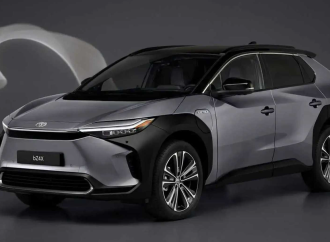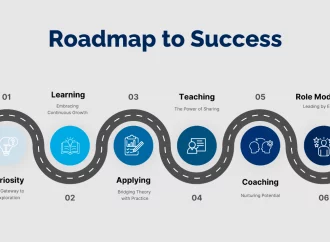Welcome to the future of urban living! With technology advancing at an unprecedented pace, our cities are evolving into smart, connected hubs that are redefining how we live, work and play. And leading this tech revolution is 5G – the next-generation wireless network that promises lightning-fast speeds and seamless connectivity for all devices. In this
Welcome to the future of urban living! With technology advancing at an unprecedented pace, our cities are evolving into smart, connected hubs that are redefining how we live, work and play. And leading this tech revolution is 5G – the next-generation wireless network that promises lightning-fast speeds and seamless connectivity for all devices. In this blog post, we will discuss how Smart Cities and 5G are working together to create a powerful partnership that’s transforming our urban landscapes in ways we never thought possible. From intelligent traffic management systems to energy-efficient buildings and more, it’s time to explore the amazing possibilities of this game-changing duo!
What is a Smart City?
A smart city is a municipality that uses data and technology to improve the quality of life of its residents. The term encompasses a broad range of initiatives, from energy efficiency measures to better public transportation options to more responsive government services.
Smart cities are often powered by a “smart grid,” which is an electrical grid that incorporates advanced digital technology to increase efficiency and reliability. A key component of smart grids is two-way communication between utilities and consumers, which allows for better management of power demand.
In recent years, the concept of the smart city has been expanded to include other aspects of urban living, such as public safety, social services, and economic development. As the world becomes increasingly connected through digital technologies, the potential for smart cities to improve the quality of life for their residents is considerable.
What is 5G?
5G is the next generation of mobile technology, and it’s poised to change the way we live and work. 5G will enable new levels of connectivity, with faster speeds and lower latency than ever before. This will open up new possibilities for smart city applications, from connected cars and autonomous vehicles to real-time air quality monitoring and more.
5G is still in its early days, but the potential for smart city applications is already clear. In the future, 5G will help us build more connected, responsive and efficient cities.
The Benefits of a Smart City/5G Partnership
A smart city is an urban area that uses technology to improve the quality of life of its citizens. A 5G network is a high-speed wireless network that offers faster speeds and lower latency than previous generations of cellular networks.
The benefits of a smart city/5G partnership are numerous. 5G networks can provide the high-speed connectivity needed to support the growing number of connected devices in a smart city. This can help to improve the efficiency of city services, such as transportation and healthcare. In addition, 5G can help to enable new applications and services that can make cities more livable and sustainable. For example, 5G can be used for remote monitoring of air quality or for deploying autonomous vehicles.
A smart city/5G partnership can also help to create new economic opportunities. The deployment of 5G infrastructure can attract new businesses and industries to a city, while the use of smart city technologies can help to improve the competitiveness of existing businesses.
Case Studies of Smart Cities Utilizing 5G
1. Barcelona, Spain
In 2017, Barcelona launched a city-wide 5G network, becoming one of the first cities in the world to do so. The network was designed to support the city’s many smart city initiatives, including a smart traffic management system that utilizes 5G-connected sensors to monitor traffic conditions in real time and adjust traffic signals accordingly. The system has already reduced traffic congestion by 15%.
2. Dubai, United Arab Emirates
Dubai is one of the most ambitious smart city projects in the world, and 5G is playing a major role. The city’s 5G network is being used to power a number of cutting-edge applications, including autonomous vehicles, drones, and augmented reality. Dubai is also using 5G to improve public safety with a new police force that will be equipped with body-worn cameras and connected to the city’s real-time crime monitoring system.
3. Seoul, South Korea
Seoul was an early adopter of 5G technology, launching a commercial network in 2019. The city is using 5G to power a range of smart city applications, including intelligent transportation systems, environmental monitoring, and public safety. Seoul is also home to the world’s first 5G-powered hospital, which is using the technology for remote patient monitoring and diagnostics.
The Future of Smart Cities and 5G
The future of smart cities is inextricably linked with the future of 5G. 5G is the next generation of wireless technology that promises to revolutionize how we connect to the internet. With speeds up to 100 times faster than 4G, 5G will enable new applications and services that were not possible before, such as streaming high-definition video and virtual reality, gaming, and more.
In a smart city, 5G will be used to connect everything from traffic lights and parking meters to self-driving cars and drones. This will create a truly connected city where all devices are able to communicate with each other in real time. The possibilities are endless, but some of the most exciting applications include:
1. Smarter traffic management: 5G will allow for real-time monitoring of traffic conditions and optimize traffic flow in real time. This will help reduce congestion and make our roads safer.
2. Improved public safety: 5G can be used to connect police cameras, fire alarms, and other emergency services so that they can all share information in real time. This will help improve response times and keep people safe.
3. Faster internet for everyone: 5G will finally bring true high-speed internet to everyone, regardless of where they live or work. This will close the digital divide and provide everyone with equal access to education, healthcare, job opportunities, and more.
4. Greater efficiency & sustainability: By connecting all devices and machines
Conclusion
Smart cities and 5G technology are transforming the way we experience our urban landscapes. By providing cities with insights into operations, increased connectivity between citizens and governments, as well as innovative applications of data analytics, smart cities are becoming increasingly attractive to citizens who want access to the amenities they need in order to live a better quality of life. It is important for us to understand why this partnership is so powerful, and how it can be used for good. As more countries around the world begin to implement 5G networks and adopt smart city initiatives, we will be able to look forward to an even brighter future ahead.





















Leave a Comment
Your email address will not be published. Required fields are marked with *